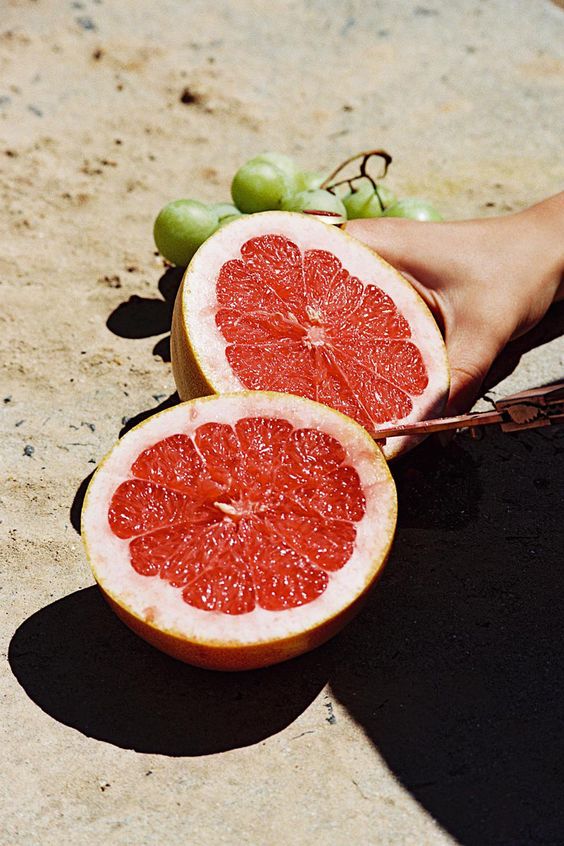When you’re trying to conceive, the food you eat can play a key role in supporting fertility and nourishing a healthy pregnancy. In fact, research suggests that following a healthy diet—including higher intakes of folic acid, full-fat dairy, and plant-based protein—could potentially lower the risk of certain causes of infertility by up to 66 percent.1 Loading up your plate with the best foods to boost fertility is a simple step that can help you take control of your fertility journey. Here’s what you need to know.
When to Start Your Fertility Diet
Once you decide you’re ready to grow your family, you may want to get started as soon as possible. So how long should you follow a fertility diet before you start trying to conceive?
Ideally, you should start making mindful changes to your nutrition plan around six months to a year before you get pregnant. But even three months of fertility-conscious nutrition can go a long way in helping to prepare your body for a healthy pregnancy.2 This helps to ensure that, from the moment of conception, you have the nutrients you need to support your baby’s development and reduce pregnancy complications.
The Best Foods for Fertility
Incorporate these nutritional powerhouses into your meal plan to help boost fertility and support a healthy pregnancy.
1. Spinach
Spinach is one of the best food sources of folate, a B vitamin that’s essential for DNA synthesis. According to research, women who supplemented their diet with folate had significantly higher rates of conception than those who didn’t .3 Folate also helps to protect against neural tube defects during the first few weeks after conception4—before many women even realize they’re pregnant—so it’s important to include it in your fertility diet.
Pregnant women should get 600 mcg of folate per day .5 A half-cup of boiled spinach provides 131 mcg of folate, and a cup of raw spinach provides 58 mcg. (Other sources of folate include asparagus, avocado, and Brussels sprouts.) Because folate is so critical during early pregnancy, consider supplementing with our Conception Support Pack to ensure you’re getting enough.
2. Full-fat dairy
Full-fat dairy products such as yogurt, milk, and cheeses are associated with a lower risk of infertility compared to their low-fat alternatives .6 They’re also a source of important nutrients such as iodine and Vitamin D—and that’s important for fertility, because low levels of iodine7 and Vitamin D8 have both been linked to an increased risk of infertility.
Milk and yogurt are also among the best sources of vitamin B12, which plays a role in central nervous system development, red blood cell formation, and DNA synthesis. Vitamin B12 deficiency may lead to temporary infertility—and if you’re pregnant, it can increase the risk of neural tube defects .9 Pregnant women should aim for 2.6 mcg of vitamin B12 each day. Along with dairy products, B12 can be found in clams, oysters, salmon, canned tuna, and ground beef.
3. Omega-3 fatty acids
Fertility is a team effort, and omega-3 fatty acids can support both female and male fertility. Research suggests omega-3s may help to improve egg quality and increase pregnancy rates in women .10 And in men, two omega-3 fatty acids in particular—DHA and EPA—may improve sperm concentration and sperm motility .11
Fatty fish like salmon, tuna, mackerel, and sardines are the best source of omega-3s. But if you’re not a seafood lover, you can also find omega-3 fatty acids in DHA-enriched eggs, chia seeds, walnuts, flax seeds, and hemp seeds.
4. Iron-fortified cereals
Iron deficiency is the most common nutritional deficiency worldwide among women of reproductive age and throughout pregnancy. And this deficiency may impact your fertility—research suggests a possible link between low iron levels and unexplained infertility.12
When you think of iron, you may think of red meat. But one of the best food sources is actually fortified breakfast cereal, which provides 18 mg of iron per serving— around two-thirds of the recommended daily intake for pregnant women .13 Other sources of iron include white beans, lentils, spinach, and tofu. Vitamin C helps your body absorb iron, so boost your benefits by pairing these foods with oranges, red peppers, broccoli, or strawberries.
5. Colorful fruits and veggies
It’s important to “eat the rainbow” as part of your fertility diet to ensure you’re getting a wide variety of vitamins, minerals, and phytonutrients. In particular, berries are known to be one of the best sources of antioxidants, which are compounds that can help protect against cell damage. When you’re not getting enough antioxidants in your diet, it can have a negative impact on fertility .14
Other antioxidant-rich fruits and veggies include tomatoes, bell peppers, carrots, broccoli, cauliflower, squash, red beets, and radishes. If you have a hard time getting your fill from just your diet, consider adding a daily supplement, like our Synbiotic Greens Powder, for a boost of antioxidants, prebiotics, and probiotics.
6. Tomatoes
Tomatoes are one of the best sources of lycopene, a plant compound with antioxidant properties. Research suggests lycopene can play a role in boosting male fertility by improving sperm count and viability—in fact, one study found that supplementing 8 mg of lycopene daily could boost sperm count by up to 70 percent .15
You’ll also find lycopene in products like ketchup and pasta sauce—often in higher concentrations than fresh tomatoes .16 But keep in mind that too many processed foods can have a negative impact on fertility, so if you’re getting your lycopene from processed tomato products, moderation is key.
What foods may negatively impact fertility?
Your fertility diet isn’t just about the foods you eat—it’s also about the foods you may want to limit while you’re trying to conceive. Research suggests cutting back on fast food, trans fats, saturated fats, and sweetened beverages could lead to higher pregnancy rates and better outcomes for women who are undergoing fertility treatment.
There are also a few healthy lifestyle changes that can support your chances of a healthy pregnancy. If you’re planning to get pregnant, now’s the time to quit smoking, limit alcohol consumption, and cut back on caffeine. Combined with a nutrient-rich fertility diet, these healthy patterns can help boost your chances of positive fertility outcomes in the future.
References:
- Jorge E Chavarro MD et al; Contributions of the Nurses’ Health Studies to Reproductive Health Research; Sept 2016
- Cleveland Clinic: How To Prepare Your Body for Pregnancy
- Audrey J Gaskins et al; Dietary Folate and Reproductive Success Among Women Undergoing Assisted Reproduction; Oct 2015
- Johns Hopkins Medicine: Nutrition During Pregnancy
- National Institutes of Health: Folate
- Kinga Skoracka et al; Female Fertility and the Nutritional Approach: The Most Essential Aspects; Nov 2021
- Divya M Mathews et al; Iodine and fertility: Do we know enough?; Jan 2021
- Xiangqian Meng et al; Influence of Vitamin D supplementation on reproductive outcomes of infertile patients: a systematic review and meta-analysis; Feb 2023
- NHS: Vitamin B12 or folate deficiency anaemia
- Deepika Nehra et al; Prolonging the female reproductive lifespan and improving egg quality with dietary omega-3 fatty acids; Oct 2017
- Banafshe Hosseini et al; The Effect of Omega-3 Fatty Acids, EPA, and/or DHA on Male Infertility: A Systematic Review and Meta-analysis; Feb 2018
- Iris Holzer et al; Iron status in women with infertility and controls: a case-control study; Jun 2023
- National Institutes of Health: Iron
- Janka Vaskova et al; The Importance of Natural Antioxidants in Female Reproduction; Apr 2023
- Damayanthi Durairajanayagam et al; Lycopene and male infertility; Mar 2014
- Erica N Story et al; An Update on the Health Effects of Tomato Lycopene; Dec 2013




















